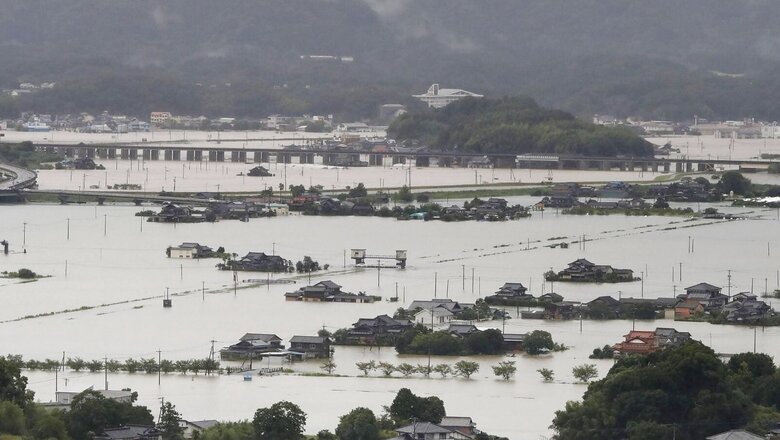
views
Mumbai: Environment and water management experts have claimed that "unscientific" works done under Jalyukta Shivar, a flagship water conservation scheme of the previous BJP-led Maharashtra government, led to flooding after recent heavy rains in the state's Marathwada region.
The scheme was launched by the then chief minister Devendra Fadnavis for the construction of check dams, rejuvenation of old check dams, repair of Kolhapur Type (KT) weirs and storage tanks and removal of encroachments from river beds so as to increase water percolation.
Two days back, heavy water discharge from the Manjara dam in Marathwada following heavy rains caused flooding in some villages of Beed, Latur and Osmanabad districts. Talking to PTI, Pradeep Purandare, former associate professor at the Water and Land Management Institute in Aurangabad region of Marathwada, claimed that "rampant and unscientific" deepening and widening of river beds in Marathwada and the construction of KT weirs led to the recent floods in the region.
"I had raised concerns over the issue from time-to-time, but they were ignored by the then state government, he claimed.
Purandare said as a first step under the scheme, continuous contour trenches were supposed to be made on hill slopes. The deepening and widening of river beds was not a priority (as part of the original scheme), but, during the Fadnavis government, this work was given preference, he said. "Hence, unscientific deepening and widening of river beds led to an increase in the water flow, he claimed. With the increased slope in river beds, even medium intensity showers would fill up a river bed downstream where it is flat and the water would spread over the banks, he said.
Environmentalist Atul Deulgaonkar said under the Jalyukta Shivar scheme, desilting of rivers was done and the huge amount of sediment removed was dumped on river banks. "During heavy showers, the sediment returned to the river bed and reduced its water holding capacity," he said. The heavy rains showers not only raised the water level quickly, but the water spread across the river banks and entered farms, damaging crops and eroding the upper fertile layer of the soil, he said. "The loss of the soil's upper layer means a drastic drop in productivity of that land for a long time, he added.
.
Read all the Latest News , Breaking News and IPL 2022 Live Updates here.















Comments
0 comment